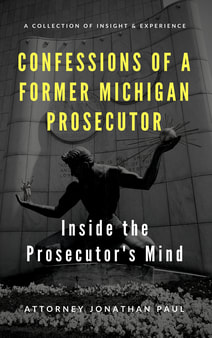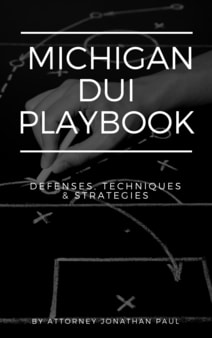Family Man, Attorney & AuthorClick to Call Me: 248-924-9458As a former prosecutor, I worked on many larceny cases; the most confusing part of this charge for many defendants and even defense lawyers is the difference between general larceny and retail fraud.
When an individual takes another person's property, they have committed the crime of larceny. Michigan's general larceny statute prohibits the stealing of certain types of property including: money, goods, bank notes, deeds, receipts, public records, and scrap metal. The law also criminalizes larceny conducted by entering or breaking into a motor vehicle or trailer and by removing or taking away certain motor vehicle parts. Larceny offenses are categorized as either a misdemeanor or felony depending on the value amount of the stolen property. These are items that are NOT FOR SALE. If you walk into a retail store and steal a pair of socks that is retail fraud; you steal someone's laptop at Starbucks that's considered to be larceny. In Michigan, if the stolen property has a value of less than $200, the offense is punishable by imprisonment for not more than 93 days and/or a fine not to exceed $500 or 3x the value of the stolen property, whichever is greater. If the stolen property is valued at $200 or more, but less than $1,000, the offense is punishable by imprisonment of not more than 1 year and/or a fine of not more than $2,000 or 3x the value of the stolen property, whichever is greater. If the value of the items is $1000 or more then it is a felony offense. The above are State of Michigan offenses, which has a separate retail fraud offense; if you are charged by a city, township, village or other municipality, the traditional retail fraud could be listed as larceny - it can be confusing. When I evaluated larceny cases as a former prosecutor, I would look at the relationship between the parties, the value, the item itself and how it happened. I would be looking for the level of intrusion on the victim; it would make a difference to me if the defendant stole the item in the presence of the victim vs the defendant taking some scrap metal from the property of the victim. I might give someone the benefit of the doubt if they "stole something" that could have been interpreted as abandoned vs an obvious "hey you're stealing directly from someone" I would look at the defendant's record and I would hope that the defense lawyer had some backstory of further information for me to evaluate. If all they have for me is "my client is a great person, he has a job, family" then they aren't going to do any better than the default outcome that everyone else receives. As a defense lawyer, I take my experience as a prosecutor and always look to better understand how my client found themselves charged with this serious crime. It's my job as a lawyer to work with my client to make sense of why this happened; if the only information available is the police report, well then my client is just a bad person and a crook who steals - it doesn't matter what they do for a living, their family situation or why this happened. I might have my client work with a counselor to talk about the case, and identify how we got here - we put a plan in place to work on our issues and show a prosecutor and judge that we're not going to walk away from the case as a threat to society without learning anything. If they believe that then my client is not going to get the outcome we're looking to achieve. Handle your issue proactively, set the stage for how the future looks for your client, and there is room to resolve a case like this with a great result. The prosecutor and judge think you're a thief who rips people off with no concerns for their happiness or well-being if we don't add something different to the story outside of the police report and the allegations. |
My Books Available on Amazon.com |
|
Representing clients in Ann Arbor, Canton, Brighton, Howell, Saline, Adrian, Taylor, Plymouth, Northville, Westland, Ypsilanti, Pittsfield Township, Warren, Sterling Heights, Farmington, Pontiac, Romulus, Lansing, Novi, South Lyon, Southfield, Birmingham, Bloomfield Hills, Royal Oak, Troy, Rochester, Jackson, East Lansing, Garden City, Livonia, Dearborn, Detroit, St Clair Shores, Hazel Park, Ferndale, Madison Heights, Waterford, Milford, Shelby Township Clarkston, Oak Park, Berkley, Fraser, Sterling Heights, Clinton Township and others throughout Washtenaw, Wayne, Monroe, Jackson, Saginaw, Macomb, Ingham, Lenawee, Charlevoix, Ottawa, Clinton, Eaton, Kent, Crawford, Allegan, Emmet, Barry, Kalkaska, Berrien, St. Clair, Livingston, Oakland County & Northern Michigan
Representing clients faced with DUI/drunk driving, retail fraud/shoplifting, drug charges, MDOP, domestic violence, reckless driving, disorderly conduct, careless driving, leaving the scene of an accident, fake ID, open container, UIP, early termination probation and other misdemeanor and felony charges. |
Ann Arbor Office LocationPlymouth Office Location |







